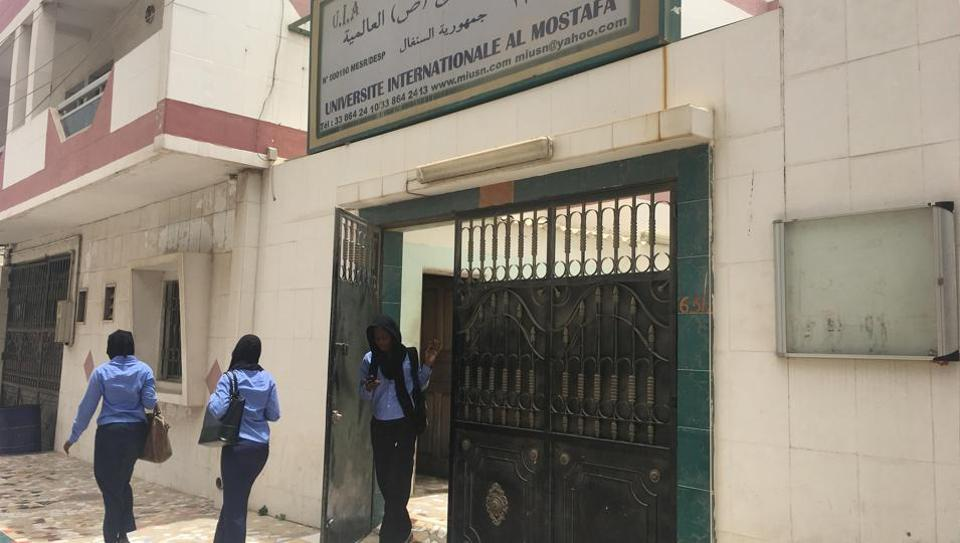Senegal represents another key African state where Iran has sought to cultivate influence, but where progress has at times been undone by its criminal mischief. Senegal’s appeal to Iran was based on the strength of its politically organized Muslim community which exercises “considerable influence on world Islam and among neighboring Francophone African states,” including at the United Nations where many of its neighbors follow its lead. The linchpin of Iran’s bid for influence has been Senegal’s well-established community of 40,000 Lebanese, of which reportedly 90% are Shi’a Muslim and whose businesses account for a disproportionate share of Senegal’s domestic industry.
Islam in Senegal is traditionally Sunni and dominated by Sufi orders. The Lebanese Shi’a minority was generally apolitical and quietist, and their position in Senegalese society was particularly vulnerable in the period after Senegal gained its independence from France. The community became more assertive, however, after Musa Sadr, a towering figure in Lebanese Shiism revered by both followers of Amal and Hezbollah, visited Senegal during a 1967 trip to Africa seeking to instill “Shiite pride in Lebanon’s Muslim diaspora.” The awakening Lebanese Shi’a community of Senegal urged Sadr to establish the first Shi’a religious center in Africa, and so he travelled to the holy city of Najaf, Iraq in search of an emissary. There, he found a Lebanese cleric named Abdul Monem El-Zein who had trained under Ayatollah Ruhollah Khomeini during his exile in Najaf. El-Zein was dispatched to the Senegalese capital of Dakar in 1969, where he would go on to establish a Khomeinist institutional presence, founding the Islamic Institution in Dakar’s Plateau neighborhood in 1978.
Iran’s Islamic Revolution the next year would have a profound impact on the trajectory of Shi’a Islam in Senegal. Although El-Zein’s initial mission was to strengthen the Shi’a identity of the Lebanese immigrant community, the reverberations of the Islamic Revolution drew Senegalese intellectuals to Khomeinism as well, leading El-Zein to broaden his proselytization activities to the indigenous Senegalese population. El-Zein would go on to found “half a dozen mosques and more than one hundred madrasas, or religious schools, around the country, many of them staffed by Senegalese clerics he has trained.” By 1984, Senegalese authorities grew wary of the burgeoning pro-Iranian sentiment in Senegal and moved to shut down the Iranian embassy in Dakar, “accusing its diplomats of abusing their status to spread religious propaganda and covertly financing Senegalese media and other organizations with an eye towards interfering in the internal affairs of the country.”
Diplomatic relations would be restored in the 1990s, and by the 2000s, Senegalese-Iranian bilateral relations warmed considerably with the accession of Abdoulaye Wade to Senegal’s presidency. In addition to numerous high-level visits of Iranian officials to Senegal and vice versa and the strengthening of commercial ties, including an $80 million Iranian investment in an Iran Khodro automobile production facility in Senegal, Iran reinvigorated its cultural and ideological meddling in Senegal with Wade’s full blessing. Wade permitted an Iranian cleric to build a Shi’a seminary, the Hawza al-Rasūl al-Akram, in Dakar where “Senegalese youth are trained using Arabic-language Shi'a texts by mullahs trained in Iranian institutions.”
Al-Mustafa International University has also established a branch in Dakar, indoctrinating 150 Senegalese students each year into Khomeinist ideology. The students receive “free tuition, a stipend, and breakfast” to entice them, and are expected to “promote Iran online or in books” in return for the Iranian largesse. They are also given enough money to enable them and their families to visit Qom during the course of their studies, furthering their indoctrination.
The resumption of pro-Iranian activism within Senegal has carried risks for the Senegalese government and invited subversion. In 2010, Senegal cut off diplomatic relations with Iran until 2013 after a shipment of sophisticated Iranian arms was discovered in Nigeria that was bound for anti-Senegalese rebels operating in Gambia. In 2013, the U.S. Department of the Treasury unearthed Hezbollah fundraising and logistical operations taking place in four West African nations, Sierra Leone, Ivory Coast, Gambia, and Senegal. A Lebanese-Senegalese dual citizen, Abbas Loutfe Fawaz, was among four individuals designated by Treasury for acting as Hezbollah “ambassadors” to West Africa. Fawaz served as “Hezbollah’s leader in Senegal,” raising funds for the terrorist organization and recruiting sympathizers through a chain of supermarkets he owned in Dakar. He had also reportedly held discussions with Lebanese Hezbollah officials about sending Lebanese nationals in Senegal to Lebanon, possibly for ideological and military training.
The Senegalese Shi’a community is smaller and has a far less pronounced institutional presence than that of Nigeria. While Senegal’s Lebanese business community has prospered, its economic success has historically been tied to staying out of the political and social limelight. The growth of the community’s transnational links to Lebanon, Hezbollah, and Iran have stirred a growing assertiveness, however. The 2006 Hezbollah war with Israel marked a turning point for the Senegalese Shi’a in terms of political activism. Sheikh El-Zein, who had previously sought to downplay any connections to Hezbollah or Iran, led a demonstration and march in Dakar attended by 3,000 mostly Lebanese nationals, many of who waved Lebanese and Hezbollah flags. Senegal is largely renowned as a model state for cultural and religious pluralism and political moderation, due in large part to the tolerance preached by its dominant Sufi orders. The growth of Khomeinist ideology and meddling by Iran and Hezbollah, however, threatens to upend the balance.
